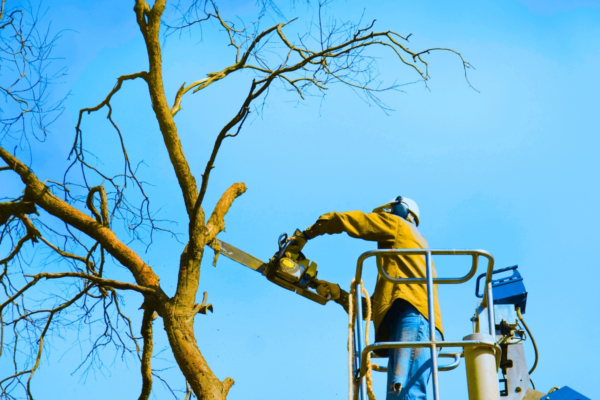
Insurance Premiums Rising and What That Means for Your Escrow Analysis

It’s that time of year: your escrow analysis should be arriving soon!
What is an escrow analysis, you might ask? It’s pretty straightforward: this analysis is a recap of the taxes and insurance premiums paid out for the entire previous year.
When you first purchased your home, this escrow account was set up to hold property taxes, homeowners’ insurance, and your mortgage payments. The lender asked for more money up front, in order to pay various bills throughout the year.
This year, your analysis may provoke a few questions. From rising insurance premiums to skyrocketing property taxes, you may have needed more money over this last year than your escrow had in it. If the money in your escrow account is lower than it should be, your lender is going to ask you to fix that escrow shortage. They will probably also increase your monthly payment.
Before you talk to your lender or insurance provider, arm yourself with information! We’re here to break down rising insurance premiums and what they mean for your escrow account.
You have refinance options
Every real estate market is unique – this is especially true of Texas. With restrictions in place for cash-out refinances and second-lien mortgages, your refinance needs a level of understanding a national lender cannot match.
What is an escrow account?
To better understand how insurance premiums affect your escrow account, it’s important to understand how your escrow account works.
An escrow account is just one type of banking account. The “escrow” refers to essentially a middleman: you pay the escrow account, and the escrow account pays your taxes, your insurance, and your mortgage payment to the appropriate parties.
How does an escrow analysis work?
At the beginning of the year, your lender will do their best to estimate what your insurance premiums and property taxes will look like for the next year. While insurance premiums and property taxes don’t regularly change, they absolutely can! This is the escrow analysis.
The lender tries to estimate how much you need to pay each month into your escrow account. Unfortunately, factors beyond your lender’s control can change the amount that is actually due every month, so by the time you reach the end of the year, you could have an escrow shortage.
Your escrow analysis may reveal that:
- Your escrow estimate was correct: If the lender estimated correctly, you should have enough in your escrow account to cover the payments— no more, no less.
- You have an escrow shortage: If taxes or insurance premiums go up during the year, you may not have enough money in your escrow account to cover the payments. Typically, the bank will front the money to make the payment, but you must pay back the lender to keep your account current.
- You have an escrow surplus: It’s not typical, but you might have actually contributed more to your escrow account than you actually needed to. Your lender will refund or credit the surplus to next year’s payments.
This year has been challenging. Because of rising insurance premiums and skyrocketing property values, more and more homeowners are seeing escrow deficiencies on their yearly analysis.
Why are insurance premiums rising?
People typically associate a higher homeowners insurance premium with filing a repair claim. But that is not necessarily the case here.
The first— and largest— reason for rising rates is inflation. As the cost of materials, goods, and labor increase across the nation, so do the costs to rebuild or repair your home, should something happen to it. When these costs go up, so do insurance premiums.
Nationwide, the cost to insure a home is up 12.1%. Some states are facing even higher costs. In Texas, for example, it now costs 16% more to insure your home than it did in 2021.
Other factors, like increasing numbers of extreme natural disasters, also play a role in increasing costs.
What does this mean for your escrow analysis?
Since rates are rising across the board, don’t be shocked if your escrow analysis shows an increase in insurance premiums last year— even if you didn’t file a claim. This also means a lot of homeowners will face shortages that they’ll need to repay.
As frustrating as it is, there is not much you can do after the fact. Remember— your lender has no control over the cost of insurance premiums or taxes. They are simply collecting the money and storing it to make sure that your bills are paid in full, on time.
Here’s what you can do for the coming year: you can shop around for lower homeowners’ insurance and you can appeal your property appraisal that determines your property taxes.
How to Lower the Cost of Insurance and Taxes
While you won’t be able to change the amount of money you already owe, there are always things that you can do to help lower the cost of your insurance and taxes for the upcoming year.
1. Rate shop for insurance.
If your insurance premiums are on the rise, you can lower them by shopping around for a better insurance rate. Like car insurance, homeowners’ insurance prices vary from company to company. Get quotes from several different companies to compare costs and policies.
2. Ask about insurance discounts.
It never hurts to ask about discounts that an insurance company may offer. Something as simple as having a security system installed can save you on your annual premium. Even if you decide not to shop around for a new company, you can ask your current company about different deals or discounts they may offer.
3. Appeal your appraisal for lower property taxes.
If you believe your local appraisal review board is wrong in their assessment of your home’s value, you can protest their decision. Your annual notice of appraised value should include instructions on how to file a protest.
Keep in mind that if you win your appraisal appeal, the decisions are binding only for the tax year in question.
4. Take advantage of tax exemptions.
Additionally, make sure you are taking advantage of any exemptions that you may qualify for. Exemptions remove a percentage or fixed portion of your home’s appraised value from taxation. In Texas, homeowners may qualify for one of the following exemptions:
- Residence homestead exemption
- Inherited residence exemption
- Age 65 or older or disabled persons exemption
- Disabled veterans and surviving spouses of disabled veterans
- Surviving spouses of first responders killed in the line of duty
Exemptions aren’t automatically granted to taxpayers. Instead, you must apply and be approved by your local appraisal district.
Your Escrow Analysis Can Help You
Your escrow analysis, though it may be surprising, is actually one of the most helpful tools you can have as a homeowner. The analysis tells you how much you pay for insurance and taxes—even if it’s not-great news, it’s still giving you the information you need to make healthy financial decisions and moves.
Though your lender collects money for your escrow account, they have no say in the cost of insurance premiums or property taxes. If you owe money at the end of the year due to an escrow deficiency, the shortage will have to be paid—but you may be able to avoid one next year. If you’re looking to keep insurance costs low next year, shop around to find a company offering better rates. If taxes are causing your escrow shortage, you can protest your appraisal value or look into tax exemptions that you may qualify for.
Looking for a refinance?
Contact our team to learn how refinancing your mortgage can add more flexibility to your finances.


